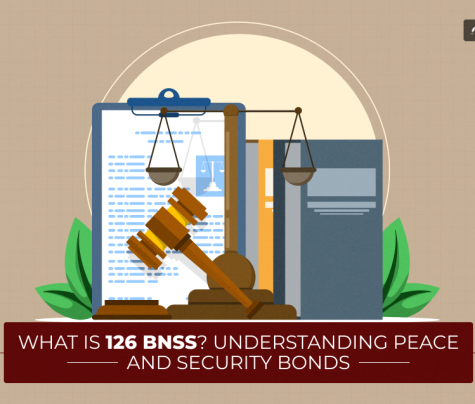
For normal people, it can be difficult to determine the difference between innocent and not guilty. But if you follow us, we will lead you in a way that helps you to understand the differences properly.
Understanding certain law terms, especially their actual meanings, is impossible. We often use ‘innocent’ and ‘not guilty’ as synonyms. But that is not the truth. This article will try to clarify your doubts regarding these two terms.
It is important to be aware of such common terms in law. Because the law is for all, we might have some court issues in the future. You can follow the famous attorney Jacob Summer to deal with your misdemeanor charges.
Understand the Difference Between Innocent and Not Guilty
In legal situations, people use the words “innocent” and “not guilty” interchangeably. They do, however, have different meanings. Although both imply a lack of criminal responsibility, they stand for distinct phases of the judicial procedure.
Being innocent means not having committed any crimes or guilt. It suggests that someone has not done the offense for which the opposite party charges them. This is the greatest proof in law, and (in the legal industry) people commonly call it “beyond a reasonable doubt.”
For example, the prosecution bears the burden of proof in criminal prosecutions. It must provide substantial evidence to persuade the jury or judge that the prisoner is guilty. If the prosecution falls short of this requirement, the jury finds the defendant not guilty.
A court of law can find someone not guilty. It indicates that the prosecution has not established the defendant’s guilt beyond a reasonable doubt, as decided by the jury or the judge.
However, this does not mean the defendant’s innocence has been established. It just indicates that there was not enough evidence to prove guilt.
In other words, “not guilty” is a judge’s decision, whereas “innocent” is a factual state.
Even if someone is innocent, there may be enough evidence to pursue legal action. However, a person may be found “not guilty” by the jury even though they are guilty. Essentially, this is what a “mistrial” is.
Innocent vs. Not Guilty: A Legal Comparison
While both “innocent” and “not guilty” verdicts indicate a lack of criminal culpability, they have different legal and societal implications.
An “innocent” verdict is more definitive and carries less stigma than a “not guilty.” However, both verdicts can have significant consequences for the individual involved.
Understanding the Verdicts
As you might have already understood by now, the terms “innocent” and “not guilty,” carry distinct meanings. Although both verdicts signify a lack of criminal culpability, they represent different legal outcomes.
An innocent verdict declares a person completely free from guilt or wrongdoing. It’s the highest standard of legal proof, often expressed as “beyond a reasonable doubt.”
In criminal trials, the prosecution bears the burden of proof. They must present overwhelming evidence to convince the jury or judge that the defendant is guilty. If the prosecution fails to meet this standard, the court declares the defendant innocent.
On the other hand, a not guilty verdict means that the jury or judge has determined that the prosecution has not proven the defendant’s guilt beyond a reasonable doubt.
It doesn’t necessarily mean the defendant is proven to be innocent. It simply indicates that the evidence presented was insufficient to establish guilt.
Legal Implications
- Finality: A verdict of “innocent” is generally something we can take as final. It’s a complete dismissal, and the defendant cannot be retried for the same crime.
- Double Jeopardy: The Fifth Amendment to the U.S. Constitution protects individuals from being tried twice for the same crime. So, if a defendant is found “not guilty,” they cannot be retried even if new evidence emerges.
- Civil Liability: While a criminal verdict does not directly impact civil liability, it can be relevant in civil cases. For example, a person acquitted of a crime but later sued in a civil case may use the criminal verdict as evidence in their defense.
Societal Impact
- Public Perception: The public often views a verdict of “innocent” more favorably than a verdict of “not guilty.” This is because “innocent” suggests complete exoneration, while “not guilty” may leave some doubt in the public’s minds.
- Reputational Damage: Even if the court finds a person “not guilty,” the legal process can damage their reputation. It may be difficult to recover from the stigma of being accused of a crime.
Implications and Difference Between Innocent and Not Guilty Verdict
While both “innocent” and “not guilty” verdicts indicate a lack of criminal culpability, there is a subtle difference. An “innocent” verdict means that the prosecution has failed to prove the defendant’s guilt beyond a reasonable doubt. It’s a complete dismissal. A “not guilty” verdict, on the other hand, simply means that the prosecution has not proven the case. It does not necessarily mean that the defendant is innocent.
The Implications of a “Not Guilty” Verdict
If you were supposed to get an “innocent” verdict but received a “not guilty” verdict, it’s important to understand the implications. While a “not guilty” verdict is a legal victory, it may not fully clear your name. It’s possible that the jury or judge had doubts about the prosecution’s case. However, nothing convinced them of your innocence.
Legal Steps to Consider
If you’re unhappy with a “not guilty” verdict, there are a few legal steps you might consider:
- Appeal: You may appeal the verdict if you believe the judge made errors in the trial or the evidence was insufficient.
- Defamation: If the prosecution’s accusations have damaged your reputation, you may have grounds for a defamation lawsuit.
- Emotional Distress: The stress and trauma of the legal process can cause emotional distress. You may be able to file a lawsuit against the prosecution or the police if you believe they acted negligently or maliciously.
Know the Difference
In conclusion, you must note that the legal system is designed to protect the innocent and ensure that the guilty are punished.
However, it is not infallible, and mistakes can occur. Therefore, while a “not guilty” verdict is a significant legal victory, it does not always guarantee a person’s complete vindication.
It’s important to consult with an attorney to discuss your options. They can help you evaluate the strength of your case and determine whether you have grounds for legal action.











0 Reply
No comments yet.